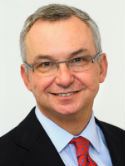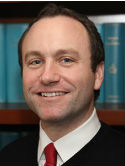Oncologist use and perception of large panel next-generation tumor sequencing Journal Article
| Authors: | Schram, A. M.; Reales, D.; Galle, J.; Cambria, R.; Durany, R.; Feldman, D.; Sherman, E.; Rosenberg, J.; D'Andrea, G.; Baxi, S.; Janjigian, Y.; Tap, W.; Dickler, M.; Baselga, J.; Taylor, B. S.; Chakravarty, D.; Gao, J.; Schultz, N.; Solit, D. B.; Berger, M. F.; Hyman, D. M. |
| Article Title: | Oncologist use and perception of large panel next-generation tumor sequencing |
| Abstract: | Background: Genomic profiling is increasingly incorporated into oncology research and the clinical care of cancer patients. We sought to determine physician perception and use of enterprise-scale clinical sequencing at our center, including whether testing changed management and the reasoning behind this decision-making. Patients and methods: All physicians who consented patients to MSK-IMPACT, a next-generation hybridization capture assay, in tumor types where molecular profiling is not routinely performed were asked to complete a questionnaire for each patient. Physician determination of genomic 'actionability' was compared to an expertly curated knowledgebase of somatic variants. Reported management decisions were compared to chart review. Results: Responses were received from 146 physicians pertaining to 1932 patients diagnosed with 1 of 49 cancer types. Physicians indicated that sequencing altered management in 21% (331/1593) of patients in need of a treatment change. Among those in whom treatment was not altered, physicians indicated the presence of an actionable alteration in 55% (805/1474), however, only 45% (362/805) of these cases had a genomic variant annotated as actionable by expert curators. Further evaluation of these patients revealed that 66% (291/443) had a variant in a gene associated with biologic but not clinical evidence of actionability or a variant of unknown significance in a gene with at least one known actionable alteration. Of the cases annotated as actionable by experts, physicians identified an actionable alteration in 81% (362/445). In total, 13% (245/1932) of patients were enrolled to a genomically matched trial. Conclusion: Although physician and expert assessment differed, clinicians demonstrate substantial awareness of the genes associated with potential actionability and report using this knowledge to inform management in one in five patients. © The Author 2017. Published by Oxford University Press on behalf of the European Society for Medical Oncology. All rights reserved. |
| Keywords: | targeted therapy; next-generation sequencing; precision medicine; tumor sequencing |
| Journal Title: | Annals of Oncology |
| Volume: | 28 |
| Issue: | 9 |
| ISSN: | 0923-7534 |
| Publisher: | Oxford University Press |
| Date Published: | 2017-09-01 |
| Start Page: | 2298 |
| End Page: | 2304 |
| Language: | English |
| DOI: | 10.1093/annonc/mdx294 |
| PROVIDER: | scopus |
| PUBMED: | 28911072 |
| PMCID: | PMC5834089 |
| DOI/URL: | |
| Notes: | Article -- Export Date: 2 November 2017 -- Source: Scopus |
Altmetric
Citation Impact
BMJ Impact Analytics
MSK Authors
Related MSK Work























